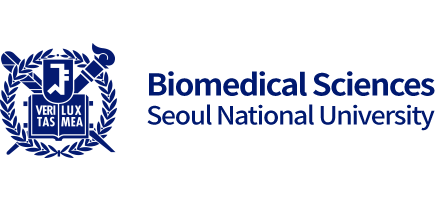Research
Research Field
We are conducting research to identify the etiology of upper airway obstructive disease and to devise new diagnosis and treatment methods.In particular, we are interested in Chronic Rhinosinusitis with Nasal Polyps and Obstructive Sleep Apnea (OSA), which are typical upper airway obstruction diseases.
-Endotype analysis to understand chronic sinusitis, a disease with very high heterogeneity
-Exploring new treatments by identifying the remodeling mechanism of nasal mucosa in nasal polyps, which is often accompanied by chronic sinusitis patients
-Discovering biomarkers for early diagnosis and effective follow-up of sleep apnea
-A study on the mechanism of cancer metastasis and progression due to intermittent hypoxia occurring in patients with sleep apnea
Keyword
Airway Epithelial Remodeling, Obstructive Sleep Apnea, Nasal polyp, Upper Airway Obstruction, Intermittent Hypoxia, Omics, Big Data, Medical AIEducation
- Ph.D., Seoul National University Graduate School, Biomedical sciences (2012)
- M.S., Seoul National University College of medicine, Otorhinolaryngology (2009)
- M.D., Seoul National University College of medicine (2004)
Career
- Associate Professor, Seoul National University College of Medicine/Seoul National University Hospital (2018.3-current)
- Visiting Faculty, Stanford University School of Medicine (2017.9-2019.8)
- Assistant Professor, Seoul National University College of Medicine/Seoul National University Hospital (2014-2018)
- Research Professor, Seoul National University Medical Research Center (2013-2014)
- Biomedical Research Fellow, Seoul National University Graduate School (2012-2013)
- Research and Teaching Assistant, Seoul National University College of Medicine (2009-2012)
- Resident, Seoul National University Hospital, Department of Otorhinolaryngology-Head and Neck Surgery (2005-2009)
- Intern, Seoul National University Hospital (2004)
Publication
- Explainable Vision Transformer for Automatic Visual Sleep Staging on Multimodal PSG Signals. npj Digital Medicine ( co-corresponding, IF=12.4)
- NRP1 antagonism as a novel therapeutic target in nasal polyps of patients with chronic rhinosinusitis. Allergy 2024 (corresponding, IF=12.6)
- Short Paper: Home-based, On-Device Non-invasive Obstructive Sleep Apnea Monitoring with Infrared Video. MOBISYS '24: Proceedings of the 22nd Annual International Conference on Mobile Systems, Applications and Services (Best Poster Award, Co-corresponding)
- Neutrophil extracellular traps promote ΔNp63+ basal cell hyperplasia in chronic rhinosinusitis. Journal of Allergy and Clinical Immunology (corresponding, IF=14.2)
- Standardized Image-Based Polysomnography Database and Deep Learning Algorithm for Sleep Stage Classification. Sleep 2023 (corresponding)
- Protein Stabilization of ITF2 by NF-κB Prevents Colitis-associated Cancer Development. Nature Communications 2023 (corresponding, IF=16.6)
- DEP-induced ZEB2 promotes nasal polyp formation via epithelial-to-mesenchymal transition. Journal of Allergy and Clinical Immunology 2021 (corresponding, IF=10.8)
- Bone morphogenetic protein-2 as a novel biomarker for refractory chronic rhinosinusitis with nasal polyps. Journal of Allergy and Clinical Immunology 2021 (co-corresponding, IF=10.8)
- Effects of Wnt signaling on epithelial to mesenchymal transition in chronic rhinosinusitis with nasal polyp. Thorax. 2020;75:982-993. (co-corresponding, IF=10.8)
- α-Helical cell-penetrating peptide-mediated nasal delivery of resveratrol for inhibition of epithelial-to-mesenchymal transition. J Control Release. 2020 Jan 10;317:181-194. (co-corresponding, IF=9.8)




